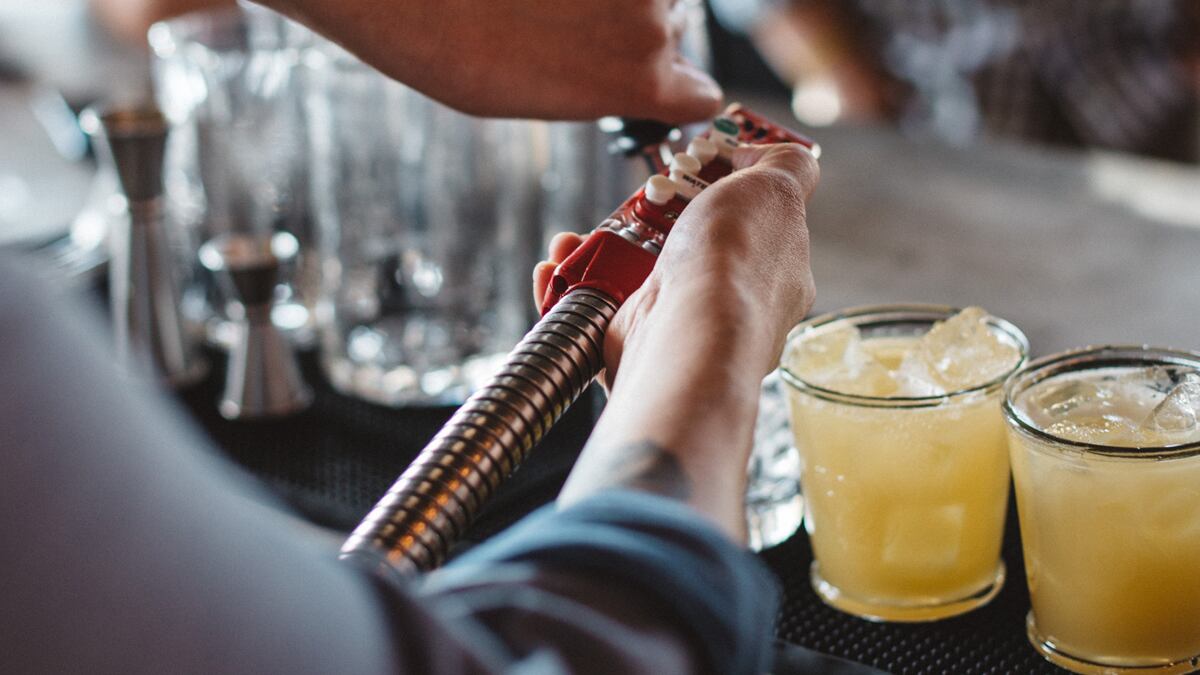If Mike Marshall gets his way, lawmakers will consider increasing the price of hard liquor, beer and wine enough to raise nearly $750 million over the next two years.
Marshall, executive director of Oregon Recovers, is still ironing out details of a proposed bill, which he hopes to finalize in a meeting with legislative lawyers Jan. 24.
What he's proposing is simple: more money to deal with the prevention and treatment of substance abuse disorder. For years, Oregon has ranked among the states with the highest levels of addiction and the lowest commitment to doing anything about it.
"This is about addressing an addiction crisis," Marshall says.
Marshall signaled his intention last year to attack binge and underage drinking with price increases and got the Oregon Health Authority to include some of the concepts he and his allies are pursuing in the agency's proposed budget.
But if the concept is simple, the details are complex and the obstacles to success enormous. Marshall and state Rep. Tawna Sanchez (D-Portland), who chairs the House Committee on Behavioral Health, are seeking a bill that would compel the Oregon Liquor Control Commission to raise prices 20%. (The OLCC has a near-monopoly on hard alcohol sold at the wholesale level in Oregon.) They want lawmakers to increase the excise tax on beer and wine by amounts sufficient to raise the rest of the money, $746 million over the state's two-year budget cycle.
Marshall says the policy goal is twofold: to reduce underage and binge drinking by raising prices and provide a significant source of funding to address Oregon's addiction problem, which Gov. Kate Brown declared a "public health crisis" nearly three years ago.
The plan would turn over money raised by the new legislation to the state's Alcohol and Drug Policy Commission for programs that pay for prevention, on-demand treatment and follow-up support for Oregonians who've finished initial treatment.
Brown didn't include the increased taxes OHA proposed in her budget for 2021-23, but she did propose a modest price increase of 25 cents per bottle for the OLCC on top of a temporary surcharge of 50 cents per bottle currently in effect, but that money would go to fund OLCC operations, not to combat addiction.
Although nobody would dispute that Oregon's addiction problem is dire, raising taxes on beer and wine has proven impossible for decades because of highly effective lobbying efforts by those industries and the clout of Oregon's homegrown wine and beer industries, which include more than 900 wineries, 400 breweries, 100 cideries and 73 distributors. It's a rare lawmaker who doesn't have a winery, brewery or both in his or her district.
A group representing Oregon's producers, the Oregon Beverage Alliance, is ready for the session and working to build popular opposition to a tax increase.
"Closures due to COVID-19, coupled with unprecedented wildfires, have had a devastating impact on Oregon's breweries, wineries, cideries, distilleries, restaurants, bars and hospitality sector," the group said in a statement. "Now more than ever, Oregon's breweries, wineries, cideries, distilleries, restaurants and bars need the support of our elected officials, not a tax increase."
Marshall knows he faces formidable opposition.
"Without a doubt, it's going to be an uphill climb," he says. "But every lawmaker we've spoken to acknowledges the addiction crisis, and we've got a grassroots movement of affected families all over this state we're going to activate."

